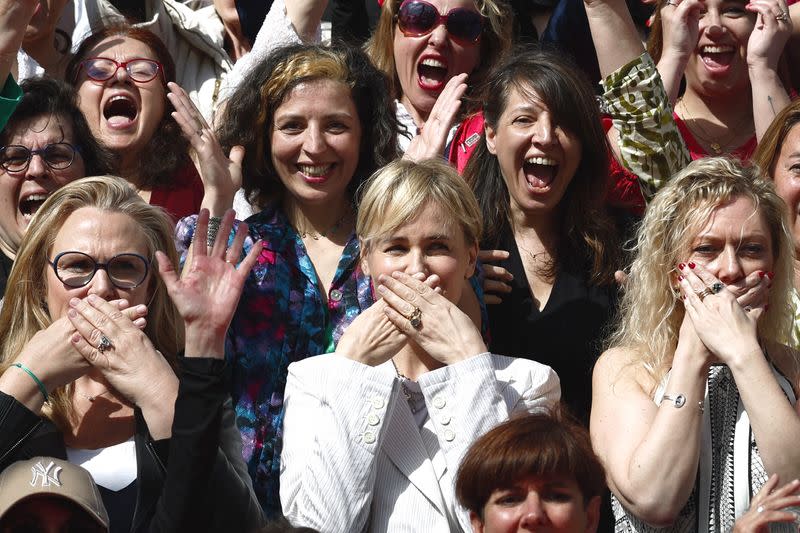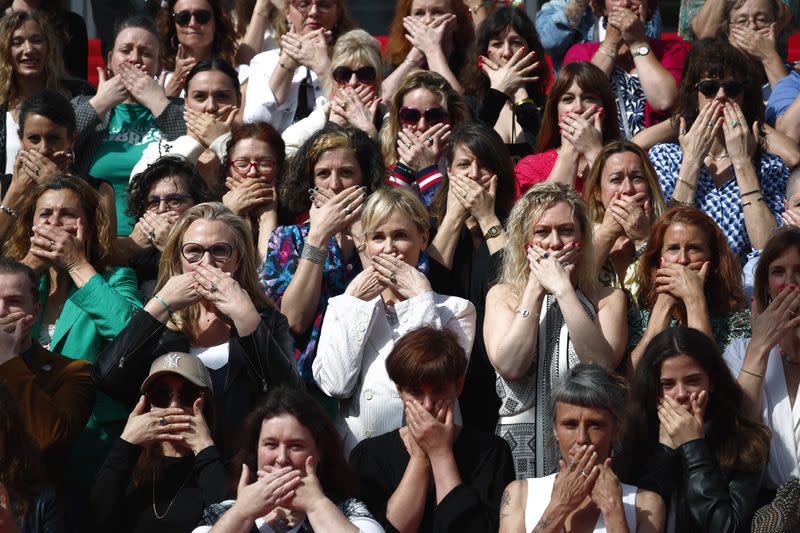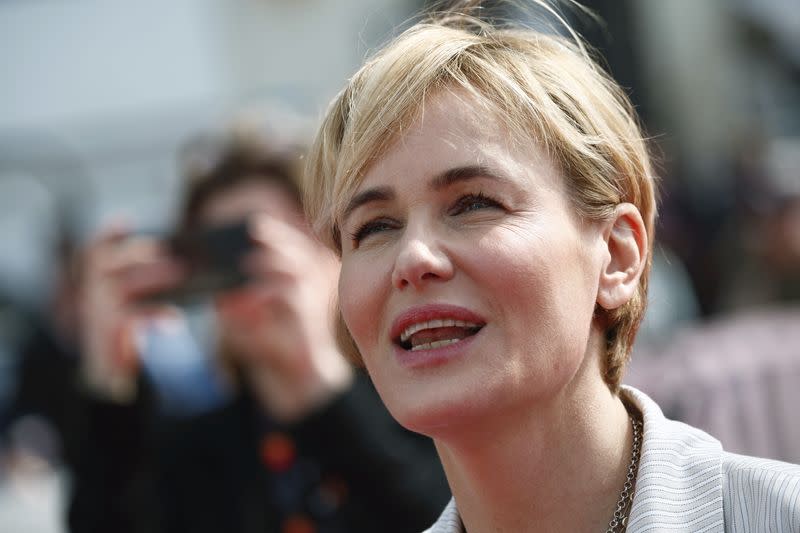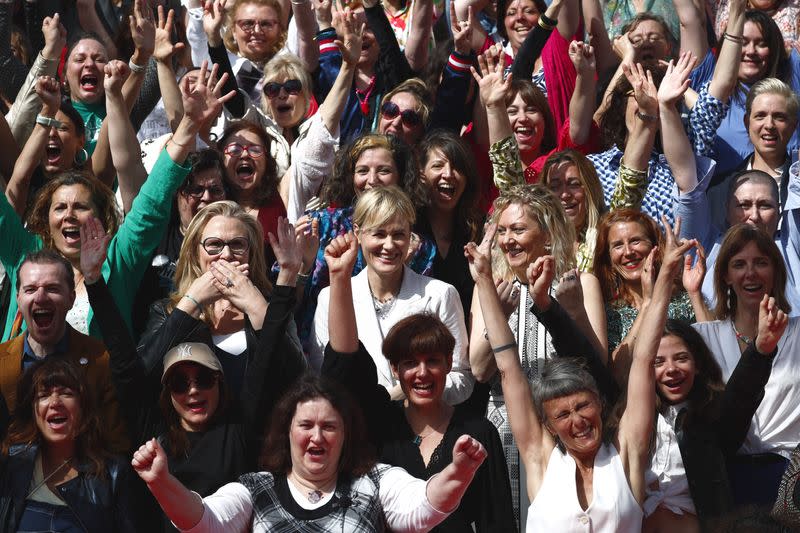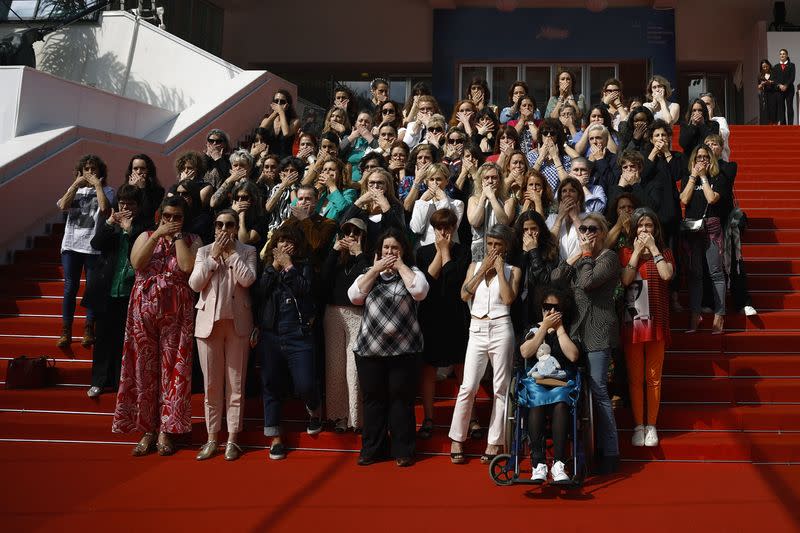At Cannes, French #MeToo director hopes film will open dialogue
- Oops!Something went wrong.Please try again later.
By Tom Little
CANNES (Reuters) - French director Judith Godreche praised the Cannes Film Festival for welcoming her and cast members of her movie about the #MeToo movement on the red carpet on Thursday, saying she hoped the film would help progress conversation on the matter.
"That the festival of Cannes authorized, allowed us this photo and this moment all together, that's beautiful," Godreche told journalists, adding: "It's a way, in fact, to open a dialogue and now we need to continue the dialogue."
The global #MeToo movement has exposed powerful men who have been accused of sexual harassment in fields including entertainment, politics and business.
Godreche's 17-minute short "Moi Aussi" ("Me Too"), which features the testimony of victims of sexual abuse, was shown at the "Un Certain Regard" competition's opening ceremony on Wednesday. Some 1,000 people helped her stage the film through music, dance and images.
"These individual experiences add to her own, underscoring their sadly universal nature," the festival said in its announcement of the film's showing. "The Festival de Cannes thus wishes to give resonance to these personal accounts."
Godreche has become a major voice in France's #MeToo movement and had spoken out against sexual violence in the film industry at the country's annual movie awards ceremony in February, receiving a standing ovation.
That same month, police opened an investigation after Godreche filed a sexual violence complaint against French film director Benoit Jacquot.
French newspaper Le Figaro reported shortly before the Cannes Film Festival began on Tuesday that organizers had hired a crisis management team to deal with a rumoured list of 10 industry figures accused of sexual abuse that might be revealed at the event.
Festival director Thierry Fremaux did not comment when asked about the report at a news briefing earlier this week.
(Reporting by Tom Little, Writing by Miranda Murray; Editing by Bernadette Baum)
